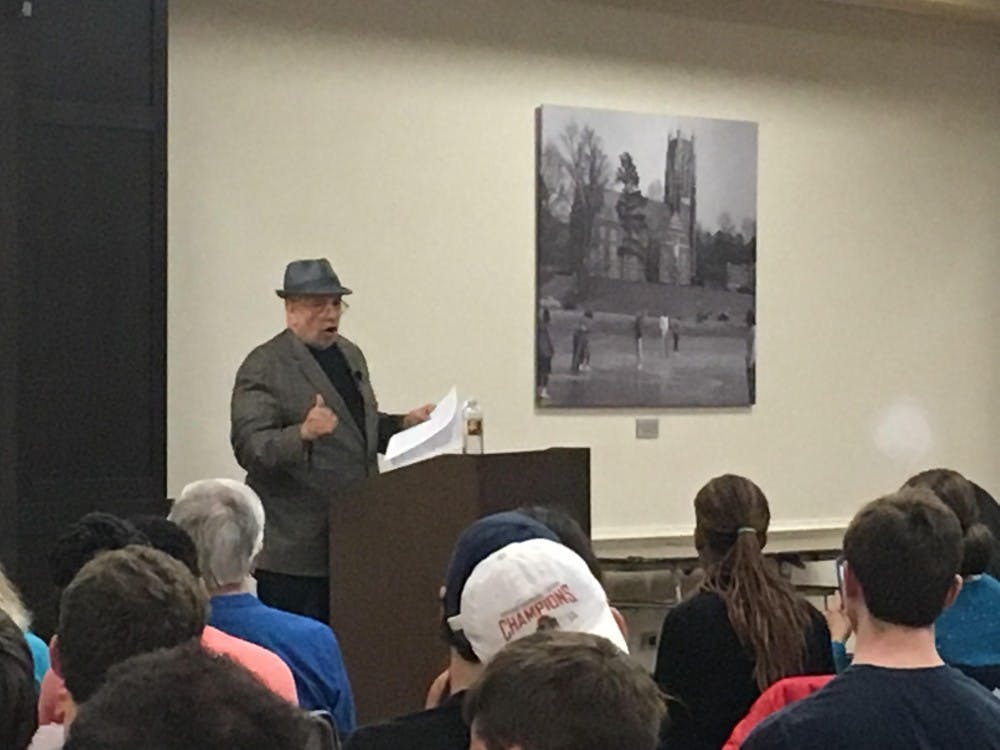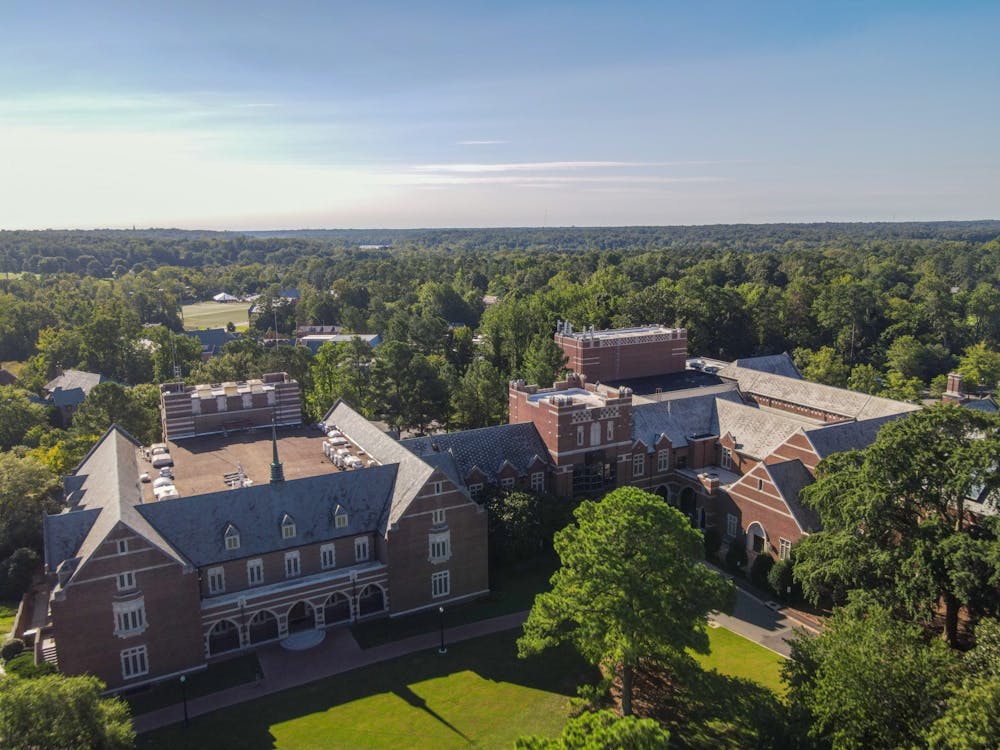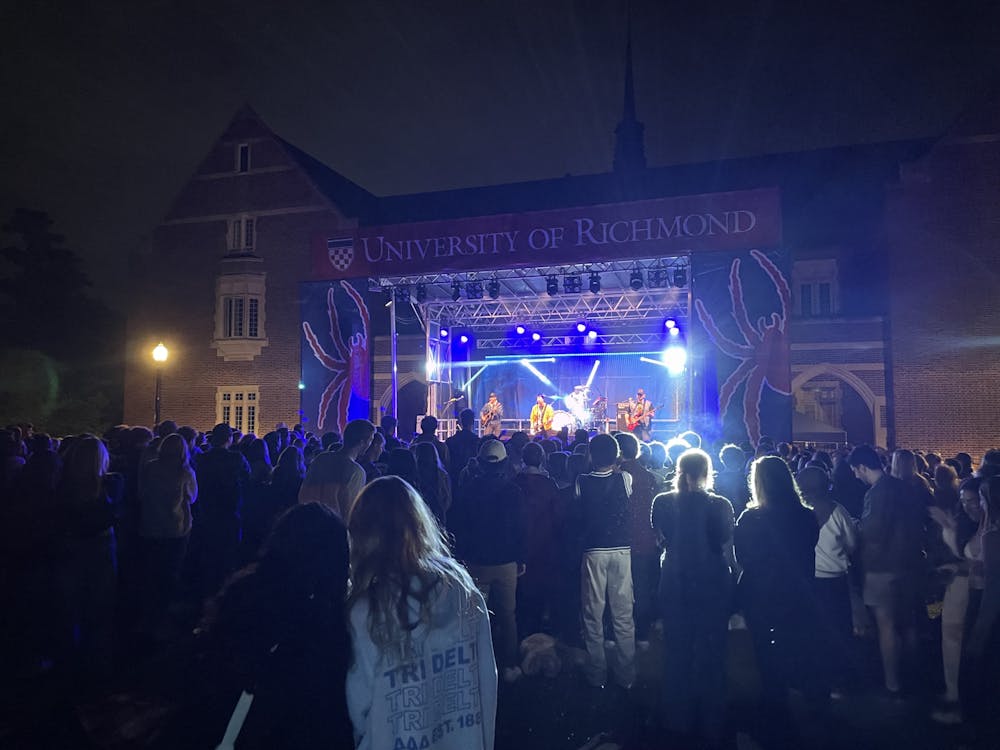On Thursday night, Walter Mosley, New York Times bestselling author of “Devil in a Blue Dress” and “Always Outnumbered” spoke to members of the Richmond community about his work in science fiction and criminology, with Afro-futurism a main theme throughout.
“Afro-futurism is a declaration of war against the Euro-futurists,” Mosley said. “Without that course of study we have no future.”
According to the Institute for Ethics and Emerging Technologies, Afro-futurism is a term that describes the development of the artistic movement of African descendants in a futuristic and sci-fi narrative.
“The most egregious term having to do with race is white,” Mosley said to a crowd of students, teachers and community members alike. “People who call themselves 'white' come from all kinds of different cultural backgrounds and religious. They're not white, The Walking Dead are white.”
Mosley believes that it's the job of the Afro-futurists to know the truth.
“Everybody in this civilized world spends most of their time lying,” Mosley said. “I think everyone should tell one different important truth everyday and take one step to be the kind of person you want to be.”
Evan McKay, a junior and aspiring writer, thoroughly enjoyed Mosley's lecture. “He made me laugh and inspired me to speak the truth," he said.
Afro-futurism is difficult to define, but it encompasses the questions of who we are and where we come from. Mosley said he believed it was the job of the science fiction writer and the Afro-futurist to ask those questions.
“When I give lectures, I’m thinking that there are a lot of ideas, all over the place, like who are Afro-futurists, and what are Afro-futurists? What I try to do is present the largest possible range of those people and those acts,” Mosley said. “All I want is for people to hear it, to take it and to see where they go with it. I think we’re entering a dialogue together. I’m thinking new thoughts because I’m reading it, and they’re thinking new thoughts because they’re hearing it for the first time.”
Contact arts reporter Caroline McNamara at caroline.mcnamara@richmond.edu
Enjoy what you're reading?
Signup for our newsletter
Support independent student media
You can make a tax-deductible donation by clicking the button below, which takes you to our secure PayPal account. The page is set up to receive contributions in whatever amount you designate. We look forward to using the money we raise to further our mission of providing honest and accurate information to students, faculty, staff, alumni and others in the general public.
Donate Now



